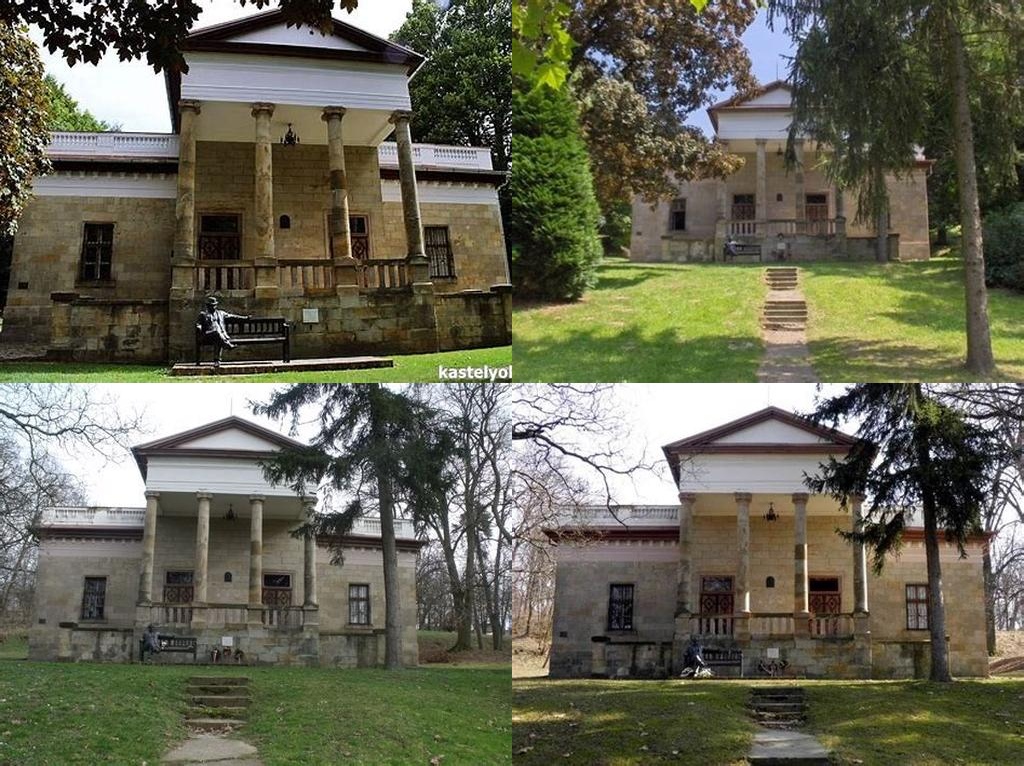
Mikszáth-kúria does not scream for attention from the road leading into the tiny village of Horpács, about an hour’s drive northeast from Budapest. In fact, this elegant, low-lying mansion seems to echo the manner of its most famous resident: a gentle, genial grandeur perfectly at home amid rural tranquility. For those who stray off the typical Hungarian tourist routes, it’s a rewarding detour into both the life of a beloved national writer and the slower rhythms of Nógrád county’s countryside.
Give yourself a moment to just take in the gardens before you approach the doorstep. The house sits inside leafy grounds, with old trees and the remnants of a romantic orchard, quite fitting for a place that attracted some of the brightest minds of late 19th-century Hungarian literature. The building itself is a tastefully restored one-storey baroque mansion, unpretentious but with a quiet dignity, hinting at centuries of Hungarian gentry life. There’s something comfortable about it — somewhere between a family home and the quieter corners of a museum — and this is exactly how Kálmán Mikszáth (1847–1910) wished it to feel.
Kálmán Mikszáth, perhaps unbeknownst to foreign visitors but universally adored in Hungary, was a master of humor and delicate social satire. He bought this house in 1904 as a retreat from the politics of Budapest and the bustle of literary circles. What truly delighted him about Horpács was the possibility of silence, and the closeness to the rural folk who later became immortalized in his short stories and novels. Inside, the mansion-turned-museum is like stepping onto a page of one of his tales. The rooms, restored with period furniture and hundreds of personal items, mirror the everyday world of Mikszáth’s era. Portraits of writers and dignitaries line the walls, their visages familiar perhaps to Hungarian visitors, but fascinating to anyone who cares about the personal networks that shaped a literary age.
The most evocative part of a visit is the study. With his desk, some tobacco pipes, and a conspicuously well-thumbed dictionary, the room seems caught in the pause between writings. Letters from contemporaries — Endre Ady, Gyula Krúdy, even the legendary Zsigmond Móricz — are displayed here. They’re not just curiosities; they’re breadcrumbs leading deep into the world of Hungarian literature. It is easy to imagine Mikszáth, a glass of wine in hand, taking an afternoon to compose one of his witty odes to the Hungarian countryside or a sharply observed sketch of provincial life. Here, you start knitting together the writer’s gentle mischief and deep affection for his fellow man.
Just outside the rooms, the collection continues in the gardens and the impressively old linden trees, survivors of storms and generations of gardeners. Several benches are invitingly placed so you may sit, just as Mikszáth did, and watch the countryside. The village itself is so small that its pace seems dictated by the seasons. If you are lucky, the caretaker will share stories about Mikszáth’s encounters with villagers, some of whom are descended from people who once brought eggs or news to the mansion. There’s no showiness, only the quiet thread of living memory.
A visit here is not merely literary tourism; it’s an immersion into the life rhythms of rural Hungary at the turn of the 20th century. You might find yourself inspired to revisit Mikszáth’s works, now with an entirely new sense of place. There’s also a small collection dedicated to local history and fascinating exhibitions that touch on the wider narrative — the story of how Hungarian writers navigated a country caught between tradition and modernity, empire and independence. More poignantly, there are details about Mikszáth’s family, and snippets about his son, Kálmán Mikszáth Jr., providing an intimate portrait of life under these wide country skies.
Today, Mikszáth-kúria is more than just a museum. It doubles as a gentle time capsule, in step with the landscape and the quietly enduring culture of Nógrád county. While grander mansions and more famous museums crowd Budapest and beyond, this modest house in Horpács offers something rare: room for contemplation and a window onto the everyday world that shaped the heart and humor of Hungary’s “great storyteller.” Whether or not you arrive as a fan of Mikszáth, you may well leave with a new favorite writer and a lingering sense of peace found only in small places with large souls.





